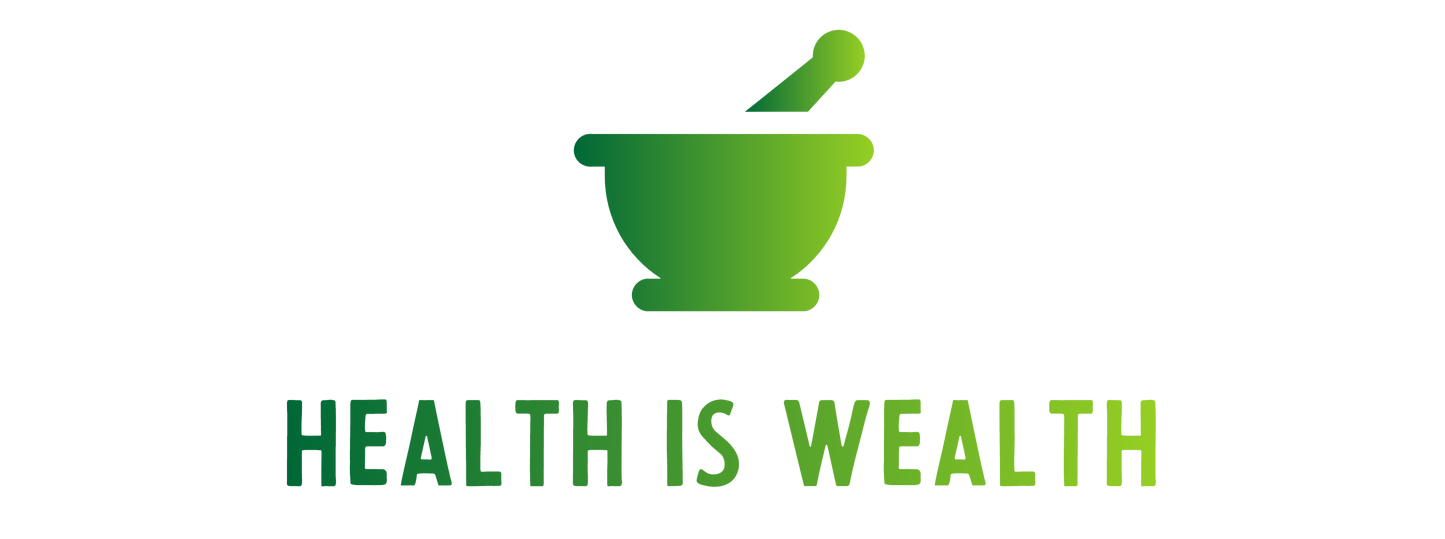
"Detoxes can be a healthy way to support your body. But, contrary to popular belief, the best detoxes aren't restrictive or unsustainable. The body has a built-in detoxification system starring the liver, so all you need to do is give the body a little help" "Stephanie Eckelkamp."
In our modern era, we find ourselves in an unprecedented exposure to toxins that surpasses any previous time in human history. While our bodies possess innate mechanisms to eliminate these harmful substances, the overwhelming amount of environmental toxins can lead to their accumulation, exerting detrimental effects on our well-being. The consequences can manifest as slow recovery from illness, DNA damage, lack of focus, mood swings, low energy, digestive issues, hormonal imbalances, developmental delays, cognitive impairments, neurological disorders, frequent infections and illnesses, cancer, skin lesions, cardiovascular issues and several other health conditions which can get worse with time.
Let's shed light on some of the primary culprits responsible for this toxic overload:
Chemical-based cleaning products and cosmetics
Chemical-based cleaning products and cosmetics have become an integral part of our daily lives, but the hidden dangers they pose to our health should not be overlooked. These products often contain a cocktail of toxins, such as parabens, phthalates, formaldehyde, triclosan, and synthetic fragrances. When we use these products, we expose ourselves to harmful chemicals that can penetrate our skin, enter our bloodstream, and accumulate in our bodies over time. These toxins have been linked to various health issues, including skin irritation, allergies, respiratory problems, hormonal disruptions, reproductive disorders, and even long-term health complications such as cancer. It is crucial to prioritise the use of natural and eco-friendly alternatives to minimise our exposure to these harmful substances and safeguard our well-being. By opting for safer, non-toxic cleaning products and cosmetics, we can create a healthier, better functioning body.
Prescription drugs
Prescription drugs, while intended to treat specific health conditions, can also pose risks and potential side effects due to their chemical composition. These medications often contain active ingredients that can interact with our body's natural processes, leading to various adverse reactions. Some common concerns associated with prescription drugs include allergic reactions, digestive issues, hormonal imbalances, mood changes, sleep disturbances, and even more severe complications in certain cases. Additionally, there is the potential for dependency and addiction with certain medications, further exacerbating health issues. It is crucial for individuals to be aware of the potential risks associated with prescription drugs, to follow proper dosage instructions, and to communicate openly with their healthcare providers to ensure the most appropriate and safe treatment options. Ultimately, the goal should be to strike a balance between managing health conditions effectively and minimising potential risks and side effects.
Environmental pollution from factories, traffic, and more
Factories and vehicles release toxic particles into the environment, posing health risks. Industrial emissions contain substances like heavy metals, particulate matter, sulphur dioxide, nitrogen oxides, and volatile organic compounds. These pollutants can cause respiratory problems, cardiovascular diseases, and neurological disorders. Vehicle emissions contribute to air pollution with carbon monoxide, nitrogen dioxide, and fine particulate matter, leading to respiratory issues and exacerbating allergies and asthma.
Stress
While stress itself does not directly cause toxin accumulation in the body, it can contribute to the body's overall toxic burden indirectly. When we experience stress, our body's stress response is activated, triggering the release of stress hormones like cortisol. Prolonged or chronic stress can disrupt various physiological processes, including digestion, metabolism, and detoxification.
When our body is under stress, it may prioritize immediate survival functions over long-term detoxification processes. This can potentially impede the body's ability to efficiently eliminate toxins, allowing them to accumulate over time. Additionally, stress can lead to unhealthy coping mechanisms such as poor dietary choices, excessive alcohol consumption, or smoking, which can introduce additional toxins into the body.
Tap water
The issue of contaminants present in UK drinking water is a matter of concern that cannot be overlooked. Various studies have revealed the presence of chemicals, poisons, heavy metals, pesticides, and other toxins in our water supply. These substances can have detrimental effects on human health when consumed over an extended period. Common contaminants include chlorine, fluoride, lead, arsenic, nitrates, pharmaceutical residues, and microplastics. Exposure to these substances has been linked to various health issues, such as hormonal imbalances, digestive problems, developmental disorders, and even increased risk of certain cancers. It is crucial for individuals to be aware of the potential risks associated with these contaminants and take necessary measures to ensure access to clean, purified water for themselves and their families.
Plastic food packaging and containers
Plastic food packaging and containers can introduce toxins into our food and beverages, posing potential health risks. Many plastic products contain chemicals such as bisphenol A (BPA), phthalates, and styrene, which can leach into the food or drink they come into contact with, particularly when exposed to heat or acidic conditions.
BPA, commonly found in certain plastics, has been associated with hormonal disruptions and has been linked to reproductive problems, developmental issues in children, and an increased risk of certain cancers. Phthalates, another group of chemicals found in plastics, have been linked to similar health concerns, including hormonal imbalances, reproductive abnormalities, and potential effects on the liver, kidneys, and lungs. Styrene, commonly used in foam food containers, is classified as a possible human carcinogen.
Processed foods and produce grown using pesticides
Processed foods often contain additives, preservatives, artificial colors, and flavors that may have little nutritional value and can be detrimental to our well-being. Consuming these processed foods regularly can contribute to a buildup of toxins.
Additionally, conventionally grown produce may be sprayed with pesticides to protect crops from pests and diseases. Pesticides are designed to kill or repel unwanted organisms but can also pose risks to human health. Exposure to pesticides has been linked to a range of health problems, including hormone disruption, neurological disorders, reproductive issues, and an increased risk of certain cancers.
Benefits of Removing Toxins
Embracing a detox lifestyle brings forth a consistent and necessary tune-up for our bodies, ensuring optimal functioning. The benefits that await us on this path include:
- Strengthened immunity: As toxins are eliminated, our immune system receives a natural boost, utilising essential vitamins, minerals, and nutrients more efficiently. The body becomes fortified to combat bacteria and viruses that often trigger recurrent illnesses.
- Heightened energy levels and improved focus: By ridding ourselves of toxins, we allow the brain to process information more effectively, dispelling the haze of mental fog.
- Sustainable weight loss: Gradual and healthy shedding of excess weight becomes achievable.
- Enhanced skin quality: A clear complexion often becomes a visible sign of progress along the detoxification journey.
- Diminished cravings: As addictive and processed foods gradually fade from our dietary choices, our desire for healthier alternatives supplants the yearning for junk food.
- Reduced inflammation: A noticeable decline in inflammation levels contributes to overall well-being.
- Improved sleep: Quality rest facilitates the elimination of waste from our brains, promoting better cognitive function.
- Enhanced digestion: Detox practices positively influence the digestive system, promoting efficient nutrient absorption and waste elimination.
Methods to Remove Toxins
- Integrate specific detoxifying foods into your diet, such as chlorella, spirulina, barley grass, wheatgrass, coriander/cilantro, moringa, burdock root. These powerhouse ingredients support the optimal functioning of the liver, kidneys, and intestines. Checkout our organic green blend which contains 6 of these ingredients and comes in powder or capsule form
- Utilise saunas to facilitate the excretion of toxins through sweat. By sweating in a sauna, we can excrete various substances such as heavy metals, volatile organic compounds, and certain chemicals that may have accumulated in the body
- Hydrate yourself with filtered water and herbal teas, ensuring your body is well-flushed from toxins while transporting vital nutrients to all organs.
- Opt for organic fruits and vegetables, which are cultivated without the use of toxic pesticides.
- Engage in deep breathing exercises and practice yoga to fully engage the diaphragm, aiding in toxin removal and promoting improved blood flow.
- Embrace regular exercise, which boosts lymph fluid and blood circulation.
- Prioritise quality sleep to support the body's waste elimination processes.
- Consider intermittent fasting to initiate ketosis, wherein the body burns fat for energy. This process helps expel stored toxins associated with fat deposits.
- Reduce or ideally eliminate alcohol consumption, as it acts as a toxin within the body.
- Enjoy rejuvenating hot baths with salts like Epsom salt, which assist in extracting heavy metals and other toxins through the skin.
- Experiment with cold water exposure, stimulating the elimination of toxins through the skin and lymphatic system.
- Practise effective breathing techniques to optimise oxygen intake and enhance blood
